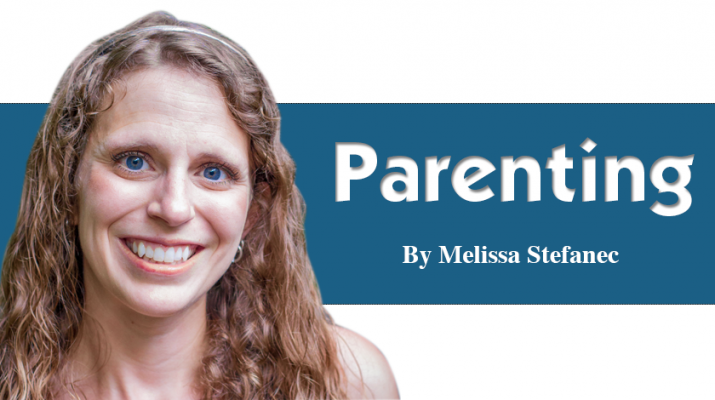By Melissa Stefanec | MelissaStefanec@yahoo.com
Recently, my family was sitting around the dinner table. My 12-year-old daughter had just joined us, fresh from an hour of math tutoring. She started talking about her day and my 9-year-old son couldn’t wait to interject with some questions.
My daughter found those questions to be highly annoying, so she snapped at my son (who was asking questions that would annoy almost any sister). They were about to get into a good-old-fashioned bicker-fest, when my husband swooped in to lay down the law.
He said to my daughter, “You know, your brother probably just wants to talk to you. He hasn’t seen you all day and is just looking for a way to engage with you. He’s not trying to annoy you. Maybe you could kindly ask him to ask his questions in a different way, so you two can talk and he doesn’t annoy you,” he said.
My daughter paused and the look of annoyance on her face cracked — ever so slightly.
“Fine,” she huffed, turning to her brother and rolling her eyes. “I’m trying to talk and your questions grossed me out. Can you ask different ones?”
And my son did just that. Our meal carried on in the way most of our family meals do, with little dashes of annoyance, chaos and laughter, all thanks to a little gentle parenting.
The way we grew up
When I was growing up in the 1980s and 1990s, societal norms were anything but gentle.
As a member of the Oregon Trail generation, my parents’ style matched the style of most parents during that time. Spanking and yelling were as commonplace, as was letting your kids run free around town and the woods.
A lot of kids from my generation enjoyed a mix of subtle absenteeism and hard-headed and hard-handed guidance. Anger and authoritativeness were good for what ails your kids. This isn’t a knock at my folks; that’s the way things were.
If the dinner-time conversation had played out in the 1980s, it probably would’ve gone down like this: my daughter would have snapped at my son, there would have been an angry exchange, I would have told my kids they had to be quiet. If they didn’t quiet down, me or my husband might have let things get out of hand and then told them if they didn’t stop, we’d give them something to cry about and so on.
Thirty five years ago, there wouldn’t have been an attempt to recognize, own and understand all the emotions my kids were feeling. The goal would have been to shut everyone down and up. That approach to intense feelings always felt like mismanagement. It never left me (or anyone else) feeling better and capable. It did the opposite. I wanted to do something different with my kids. And I’m not alone.
Enter gentle parenting
So, as a means to nurture today’s young ones, many folks in my generation turned to gentler parenting. I think gentle parenting gets a really bad name. If done correctly, gentle parenting doesn’t let kids get away with saying or doing whatever they want. Gentle parents give their children consequences, but there is far less emphasis on punishment and shame as ways to correct a child’s undesirable behaviors.
Gentle parenting encompasses many different parenting styles, such as mindful, intentional and respectful parenting. Conceptually, gentle parenting aims to teach children how to recognize their emotions and self regulate. Instead of threatening or punishing, gentle parenting focuses on helping children understand their own emotions while recognizing how their actions affect others.
Consequences share the stage with self awareness, empathy and future thinking. Said more simply, gentle parents want their kids to understand themselves and those around them. You can’t coach kids on doing that if they are living in a state of fear, anger, dismissal and shame.
Emotions are tough. Our lizard brains make us feel very passionate, irrational and intense things. I’m 41 years old and I’m still trying to understand how my own emotions and actions affect others. Doing such is a lifelong process, but it likely doesn’t help that I mostly started this process in adulthood.
Starting early
I don’t want my kids to wait until they’re in their 20s to start rediscovering their emotions and how to appropriately process those emotions, just because I made them stuff their emotions down for 20 years. I don’t want them to wait until young adulthood to consider how their emotions and resulting actions affect their own and others’ wellbeing. I want my kids to be twice the person I am by the time they’re 40.
So, I’m starting early. Societal norms during my childhood may have taught me that being kind and nurturing were signs of a weak character. I may have been taught that it’s impossible to be both gentle and firm. But a lot of gentle parents are proving that ideology wrong. We know it’s possible to be gentle, firm and effective. We can give our kids the tools they need to be happy, strong and empathetic adults.

